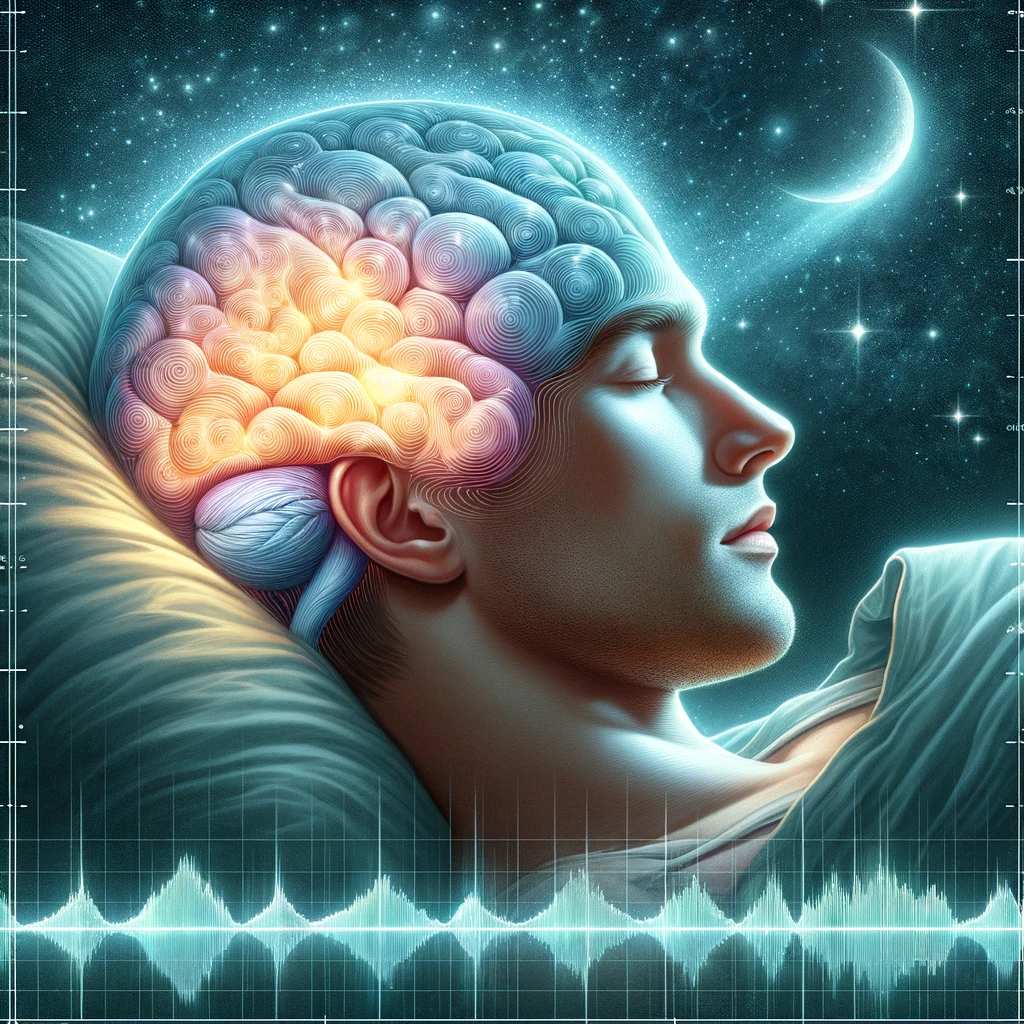In our fast-paced world, the quest for more hours in the day often encroaches on a critical health component: sleep. Commonly undervalued and frequently sacrificed for productivity or leisure, sleep is foundational to our well-being, influencing everything from brain functionality to immune system strength. This comprehensive exploration delves into the multifaceted role of sleep, its mechanisms, and its profound implications for overall health, underscoring why prioritizing rest is not a luxury but a necessity.
The Mechanisms of Sleep
Sleep is an intricate biological process essential for human survival, akin to eating and breathing. It is governed by two main systems: the sleep-wake homeostasis, which signals the need for sleep based on prior wakefulness, and the circadian rhythm, which aligns sleep with environmental light cues. These systems work in tandem to regulate sleep duration and quality.
Understanding Sleep Stages
Sleep architecture comprises two primary types: Rapid Eye Movement (REM) sleep and Non-Rapid Eye Movement (NREM) sleep, cycling through four to six times in a typical night. Each cycle includes distinct stages, crucial for various restorative functions:

NREM Sleep:
Non-Rapid Eye Movement (NREM) sleep, encompassing approximately 75-80% of an adult's total sleep time, is a crucial component of the sleep cycle, divided into three distinct stages, each serving unique restorative functions for the body and brain.
Stage N1 (Transition to Sleep): This initial phase marks the transition from wakefulness to sleep, typically lasting several minutes. During N1, muscle tone throughout the body begins to relax, and brain wave activity shifts from wakeful alpha and beta waves to slower theta waves. This stage is relatively light, and individuals can be easily awakened.
Stage N2 (Light Sleep): As sleep progresses into N2, which constitutes approximately 45-55% of total sleep, brain activity continues to slow, interspersed with brief bursts of rapid activity known as sleep spindles and K-complexes. These phenomena are thought to play a role in consolidating memory and maintaining sleep continuity. Heart rate and breathing stabilize at lower rates, body temperature drops, and muscles relax further, decreasing the sleeper's awareness of the external environment.
Stage N3 (Deep Sleep): Representing 15-25% of total sleep, N3 features the slowest brain waves during sleep, known as delta waves. Deep sleep is crucial for physical recovery and growth, as it fosters tissue repair, growth hormone release, and immune system strengthening. This stage is also vital for cognitive functions, such as memory consolidation and information processing.

REM Sleep:
Rapid Eye Movement (REM) sleep is a unique and vital sleep phase characterized by distinctive eye movements, increased brain activity, and vivid dreaming. This stage constitutes about 20-25% of an adult's sleep cycle and is crucial for various aspects of health and cognitive function.
During REM sleep, the brain's activity patterns become more dynamic and resemble those observed during wakefulness, facilitating essential processes such as memory consolidation, learning, and emotional regulation. The brain synthesizes and processes experiences from the day, embedding them in long-term memory and making sense of emotional experiences, which is fundamental for mental health and resilience.
Physiologically, REM sleep is marked by an increase in brain oxygen consumption and neuronal activity, suggesting intense brain function. Although the body experiences atonia, or muscle paralysis, to prevent acting out dreams, the eyes dart back and forth rapidly, which is characteristic of this phase.
REM sleep cycles lengthen through the night, with the longest periods occurring just before awakening. This stage is integral to cognitive functions like creativity, problem-solving, and emotional well-being. Disruptions in REM sleep can lead to poor concentration, impaired memory, and a decreased ability to process emotional stimuli, which underscores its significance.
Moreover, REM sleep has been linked to the regulation of mood and plays a role in learning and memory by reinforcing neural connections. Its importance extends to various domains of health and well-being, highlighting why adequate REM sleep is a cornerstone of a healthy sleep regimen.
Health Implications of Sleep
Cognitive Function and Mental Health
Adequate sleep is indispensable for cognitive processes such as learning, memory, problem-solving, and decision-making. Sleep deprivation can impair attention, alertness, concentration, reasoning, and problem-solving, making daily tasks more challenging and increasing the risk of accidents.
Moreover, sleep and mental health are deeply interconnected. Chronic sleep issues can exacerbate symptoms of mental health disorders like depression and anxiety, while good sleep has been shown to improve mood and emotional resilience.
Physical Health Benefits
Immune Function: Adequate sleep fortifies the immune system, enhancing the body's ability to combat infections and inflammation.
Metabolism and Weight Control: Sleep influences hunger hormones and the body's metabolism, playing a significant role in weight regulation.
Cardiovascular Health: Quality sleep helps maintain heart health, regulating blood pressure and cholesterol levels, critical factors in preventing heart disease.
Longevity: Overall, sufficient sleep is associated with longer life expectancy, reducing the risk for chronic diseases.
Strategies for Improved Sleep
While individual sleep needs vary, most adults require 7-9 hours per night. Here are actionable strategies to enhance sleep quality:
Consistency: Adhering to a regular sleep schedule strengthens circadian rhythms, improving sleep quality.
Environment: A quiet, dark, and cool bedroom can enhance sleep. Consider using earplugs, eye shades, or blackout curtains to mitigate disruptions.
Pre-Sleep Routine: Establish a calming pre-sleep routine to transition your body and mind toward rest, such as reading or gentle stretching.
Mind Your Diet: Avoid caffeine, alcohol, and heavy meals close to bedtime. Opt for a light snack if needed.
Exercise: Regular physical activity can promote better sleep, though it's best to avoid vigorous workouts close to bedtime.
Limit Screen Time: Reduce exposure to electronic devices before sleep to minimize blue light interference, which can disrupt melatonin production.
In synthesizing the insights gleaned from understanding both NREM and REM sleep stages, we uncover the nuanced tapestry of human rest, revealing how each phase contributes indispensably to our holistic well-being. The conclusion drawn from this exploration is not merely academic; it underscores a profound truth about our biological necessity for sleep, offering a compelling narrative for why we must prioritize this fundamental aspect of our lives.
The interplay between NREM and REM sleep facilitates a complex, cyclical process that underpins our cognitive functions, emotional resilience, and physical health. NREM sleep, with its deep restorative powers, lays the groundwork for the more active, cerebral work undertaken during REM sleep. Together, they form a partnership that balances the physical repair and growth facilitated by NREM sleep with the mental consolidation and emotional processing attributed to REM sleep. This intricate dance between body and mind during our sleeping hours is as critical as any of our waking functions, influencing our memory, learning, mood regulation, and even our creativity.
Beyond individual health, the implications of understanding sleep's multifaceted roles extend into broader societal contexts. Recognizing the importance of sleep can inform healthcare policies, workplace practices, and educational strategies, advocating for environments that respect and accommodate our natural sleep cycles. In an era where sleep deprivation is often worn as a badge of honor, this knowledge serves as a crucial counter-narrative, emphasizing that true productivity and success are not achieved in spite of sleep, but rather, through it.
For individuals, this understanding is an invitation to reevaluate personal sleep habits and recognize that quality sleep is not a luxury, but a cornerstone of good health. It is a call to action to cultivate sleep-friendly environments and routines that align with our biological needs, embracing good sleep hygiene as a critical component of self-care. By doing so, we not only enhance our own health and well-being but also contribute to a culture that values and promotes the benefits of rest.
The exploration of NREM and REM sleep phases illuminates the intricate mechanisms by which sleep nourishes and rejuvenates our entire being. It highlights sleep's indispensable role in maintaining health, fostering resilience, and enabling human potential. As we advance in our understanding and appreciation of sleep's profound impact, we unlock the potential for healthier, more fulfilled lives, underpinned by the restorative power of sleep. In recognizing and honoring our need for deep, restful sleep, we tap into one of nature's most potent sources of renewal, setting the foundation for a vibrant, energetic, and cognitively sharp existence.








